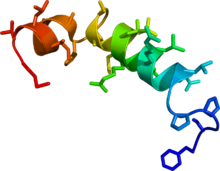
This image shows neural activity during sleep differs between older and younger adults. Credit: Courtesy of Matthew Walker and Bryce Mander
Restorative, sedative-free slumber can ward off mental and physical ailments. As we grow old, our nights are frequently plagued by bouts of wakefulness, bathroom trips and other nuisances as we lose our ability to generate the deep, restorative slumber we enjoyed in youth. But does that mean older people just need less sleep? Not according to UC Berkeley researchers, who argue in an article published April 5 in the journal Neuron that the unmet sleep needs of the elderly elevate their risk of memory loss and a wide range of mental and physical disorders.
“Nearly every disease killing us in later life has a causal link to lack of sleep,” said Matthew Wa...
Read More









Recent Comments